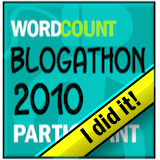If you're a CFA charterholder considering a freelance writing career, here's advice from Omar Bassal, CFA. Omar is the head of asset management at NBK Capital, a freelance writer, and the author of Swing Trading for Dummies.
I'm posting Omar's article as part of my preparation for a panel on "Alternative Careers for CFA Charterholders" to be presented to the Boston Security Analysts Society on January 14, 2009.
Here's Omar's advice.
1. Choose your work carefully: Part of being a good writer is choosing the right businesses and people to work with. There are a lot of fly-by-night operations that want text to fill space. While they might pay the bills, they won't further your professional development.
2. Get a proofreader: No one is perfect—not even CFA charterholders. Having a second pair of eyes before you submit your work is always smart. Find a reasonably priced person via Craigslist.
3. Know your audience: Be able to differentiate between unsophisticated audiences (where "standard deviation" is too technical a term to use), semi-sophisticated audiences (where "standard deviation" needs no further explanation) and sophisticated audiences (where "standard deviation" is an incomplete view of risk).
4. Get paid by work, not by hour: Firms will want to pay you by the hour. But you should push to be paid a flat rate for your work. This doesn't always mean you'll get more. But over time, you'll be more efficient and productive as a result. Plus, you won't need to keep tabs on every minute you're working versus checking e-mail.
5. Seek contracts: Monthly and quarterly newsletters and reviews are an excellent way to get your hands on steady income.
6. Network with other writers: There are many fish in the sea and writing as a CFA charterholder doesn't mean you're taking away business from a fellow CFA charterholder. Sometimes clients will come to you with requests that you're unwilling or unable to do. Being able to pass that work onto other contacts means your client feels his/her needs are being met by you. Do it often and others will return the favor.
7. A CFA charter does not mean you know everything: If you're an expert in equities, you may find navigating fixed income waters tough. Make sure you thoroughly understand what you're getting into before you agree to do a job.
8. Have a contract: Approach writing as you would any other business. Have a contract in place for every writing job which explains your responsibilities, your contractor's expectations, delivery schedules, terms of cancellation and prohibition of passing your work on to other parties. Besides protecting your interests, a contract will flash a signal that you're a professional writer.
9. Seek out non-traditional clients: Realize that your easiest business may come from non-traditional clients. "Traditional clients" may be mutual funds, financial advisors and institutional asset management firms. Non-traditional clients include trade groups with pension plans, foundations, endowments and other less sought after institutions.
10. Punctuality is everything: Don't view your text as the finish line for your contractor. Your work will likely be checked by senior staff or formatted for e-mailing or printing—all things based on firm schedules. Treat your work as a business. Being late means being unreliable—no matter how great the final text may be.
_________________
Susan B. Weiner, CFA
Check out my website at www.InvestmentWriting.com or sign up for my free monthly e-newsletter.
Copyright 2008 by Susan B. Weiner All rights reserved
Subscribe to:
Post Comments (Atom)



No comments:
Post a Comment
Note: Only a member of this blog may post a comment.